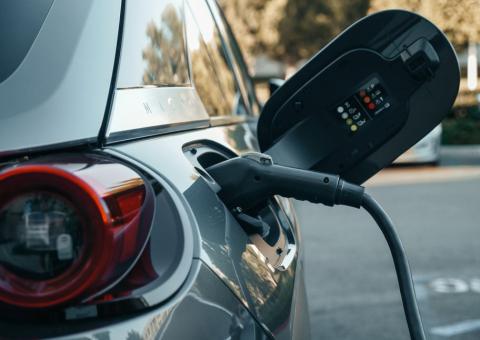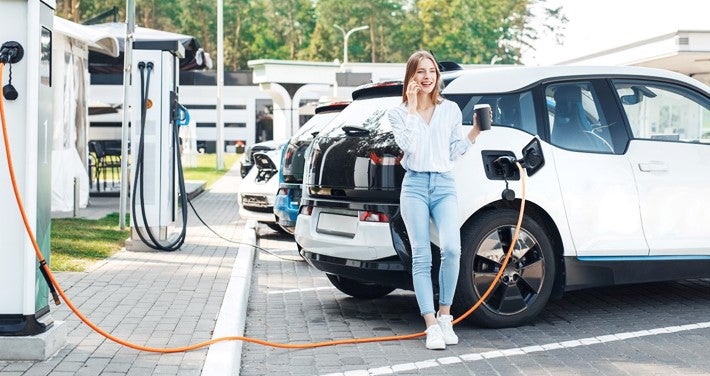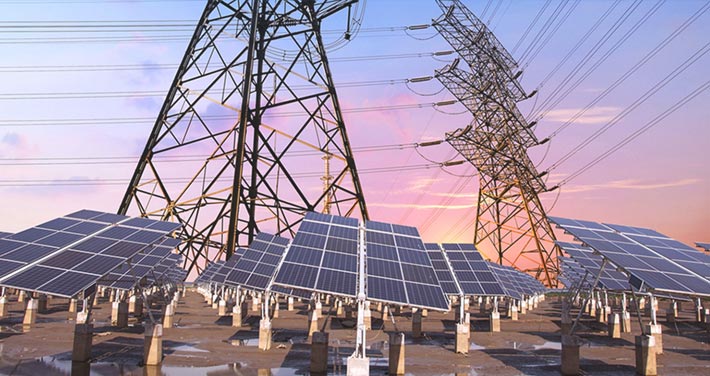As electric vehicles continue to increase in popularity, we thought it would be interesting to hear from a first-time EV owner. We sat down with Jennifer Bruce of our Hampton, New Hampshire, service area to learn more about her recent purchase of an electric vehicle and some of the things she’s learned along the way.
According to Energy.gov, EVs are more than three times more effcient than cars powered by today’s conventional engines.
What prompted you to purchase an electric vehicle?
I started a new job in May of 2020, and my commute is 50 miles each way. I was driving a Jeep Wrangler, and it was truly painful to stand at the gas pump and watch the numbers creep higher and higher. My office building has two (free) EV charging stations for employees that were seldom used, and that definitely influenced my decision.
What is the make and model of your EV?
I ended up purchasing a Hyundai Kona, in part because it’s a hatchback and I like the cargo space. I also have two dogs, and I actually had to remove the back seat from my Jeep to accommodate them.
Was it difficult to find what you wanted?
Yes, there weren’t very many of them available. My parents live in Burlington, Vermont, so I was looking both here and there. My local dealership had just one in stock, and that’s the one I ended up buying.
What are some of the biggest advantages of an EV?
Acceleration is instant – it’s nothing like my Prius hybrid. Braking takes some getting used to as well – EVs use “regenerative braking” in order to recapture wasted energy. When you take your foot off the accelerator, the vehicle slows down considerably. EVs also have an average of a 30% reduction in maintenance costs because there are fewer moving parts. No more oil changes!
What are some of the drawbacks of owning an EV?
I’d say the biggest thing is range (how far you can drive before recharging). Range is relative. The sticker on the window might say 275 miles between charges, but when you factor in terrain and temperature as it relates to climate control, that number can drop significantly. Even fast-charging stations can’t compete with the five minutes it takes to fill up your gas tank.
I was surprised, too, by the various EV charging station networks. There are many different providers, and you need to have a smartphone app for any that you plan to use – even the free ones require you to set up an account. That, and learning the EV lingo. It can be daunting at first!
Can you share a fun fact about EVs with us? Something people might not know?
I had to Google this one: The first electric car was developed in 1890! Its max speed was 14 mph, so it quickly outlived its usefulness. Also, EVs are required to emit a manufactured sound below a speed of 18 mph to reduce the likelihood of injuries to pedestrians. I refer to my car as the “spaceship,” and my dogs can hear it coming from several blocks away.
Any final thoughts?
Overall, I love owning an EV. I can put up with its limitations – they’re not worse than traditional gas engine limitations, just different. Longer trips definitely require advance planning, as some types of chargers can take as long as 48 hours to reach a full charge. DC fast chargers are the best, and there are more being added every day.
Key Takeaways
- All-electric vehicles require less maintenance because they have fewer moving parts, fewer fluids, and reduced brake wear due to regenerative braking.
- “Range anxiety” is real, but the infrastructure is improving all the time.
- Not ready to take the plunge? Consider a hybrid or plug-in hybrid for many of the same benefits as an EV, including a reduction in greenhouse gas emissions.




